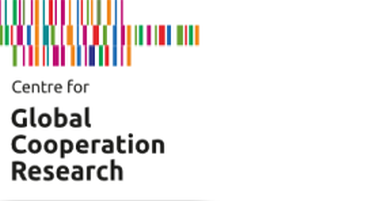2015: Annual Report 4
In the fourth year of its existence, the Centre has continued to set agendas. A particular focus of interest was our study of micro-practices in transnational cooperation, with reference to fields such as biodiversity and sustainability. As a second focus of interest, we turned our attention to diasporas which we consider agents of global cooperation, organisational forms in real and virtual spaces, and key contributors to areas such as conflict management. Furthermore, we have forged a closer link between our research and policy-making, as the Käte Hamburger Dialogues on the Crimea crisis and on relations with Iran after the nuclear deal showed.
At our Midterm Conference in summer, our Fellows pro-vided insights into how they have made creative use of the Centre’s ‘thinking spaces’ to explore new issues and to de-velop new conceptual approaches on a cross-disciplinary basis. We took stock of what we have achieved so far and asked which innovative forms of knowledge and which methodologies are emerging in the framework of cooperation research.
Our research also attracted interest from key policy-mak-ers and a broader public, with the expertise provided by the Centre and its partners appreciated by institutions such as the China Council for International Cooperation on Environment and Development (CCICED). In addition, the Centre has become a source of ideas and a partner for other think tanks which share their knowledge with soci-ety at large and with policy-makers. In Germany, this is evident, for example, from the Centre’s thematic and concep-tual cooperation with the German Federal Agency for Civic Education (bpb) and the Institute for Foreign Cultural Relations (ifa) in 2015.
Vorschau

Global Cooperation Re:search. Annual Report
Zitieren
Rechte
Nutzung und Vervielfältigung:
Dieses Werk kann unter einer Creative Commons Namensnennung - Keine Bearbeitungen 4.0 Lizenz (CC BY-ND 4.0)
Creative Commons Namensnennung - Keine Bearbeitungen 4.0 Lizenz (CC BY-ND 4.0)
genutzt werden.
